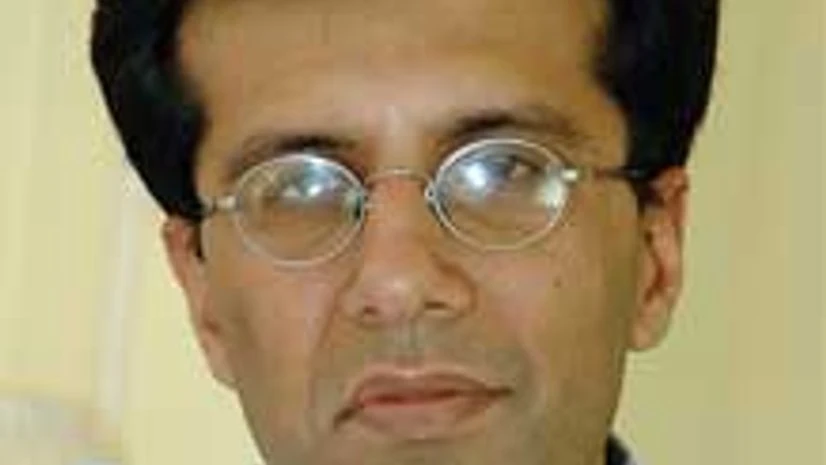Don't want to miss the best from Business Standard?

Government schools are churning out hundreds of pass-outs every year but quality leaves a lot to be desired. Selection of teachers is often on criteria other than merit. In this environment, is there any real movement on the ground? Central Square Foundation (CSF) is involved with the government's efforts to improve the quality of primary- and secondary-level education. In an interview with Anjuli Bhargava, CSF's founder and chairman, Ashish Dhawan, tells what has been done and what remains undone in the education sector. Edited excerpts:
Does the central government seem serious about trying to improve primary and secondary education?
The government is serious about improving quality of education. They get the message that access and equity have been solved.
Also Read
Another important message they have got is what is measured is done. How can you improve what you refuse to measure? Ten years ago, there was an anti-assessment lobby. Why should our children be tested at all?
The whole needle has turned dramatically, where bureaucrats are saying that we need to know how children are faring before we try to change or improve it. Credit also needs to go to ASER (the Annual Status of Education Report) for holding up a mirror for all to see for 10 years now.
The Centre has now created a budget for states to roll out assessments. States are trying out their systems. Some states have taken the lead in this. Delhi, for instance, is clubbing students based on their grade levels, rather than grade for remedial sessions. AAP (the Aam Aadmi Party) is doing a good job in this area. Haryana is doing a monthly summative assessment. Tamil Nadu and Andhra [Pradesh] are using data very effectively. The Centre is giving them money to do this. In Andhra [Pradesh], for instance, we have helped them create a vision document.
Over the next few months, the Centre will roll out a census assessment. We are working closely with NCERT (the National Council of Educational Research and Training) to develop this new assessment census. Every child in India will be assessed (government schools to start with) and that data will then be used to improve outcomes. This realisation - that you must measure before you try to improve - has come at a macro level. At least the train has left the station. We are still far from using the data coming out of these assessments, barring Tamil Nadu which is doing a commendable job.
How is Tamil Nadu using data?
They are using the data and customising their teacher training based on their findings. We know our children are struggling with division of fractions. Let's retrain our teachers on how to teach division of fractions.
They know which districts are performing well and accordingly they know where to concentrate. Eventually, the data need to be used at the school-level, where a teacher looks at the data and can figure areas of lacunae among their students.
Is the central government taking a more pro-active role in getting states to take responsibility?
The Centre is actively trying to get states to compete with each other. We are creating an index with the HRD (human resource development) ministry and some others to assess states. Through this index, one can see which states are doing well and which are lagging behind, codify the best practices and eventually incentivise states to perform better. The Centre has realised its role; its budget is small; it's jurisdiction is limited, it can't do it on behalf of the states but an instrument has been created to celebrate states that make the effort.
Will a larger part of the Union Budget be assigned to states that do well?
Not as of now but hopefully, someday that will happen. As of now, NITI Aayog will codify some of the best practices and share these across states. Today, if you go to one state, they won't even know what the other state has done which appears to be working well. Specific stuff will be shared - such as government orders, specific reforms, policies that were changed, operational steps taken to bring the change, the hurdles faced - this is what has been showing results.
Take, for instance, hiring of new teachers. More than half the government teachers hired in the country are not hired on a merit-based system. Sometimes, it's not bad intent but simply failing to clearly spell out the criteria.
Karnataka, for instance, has drastically overhauled its method of hiring government teachers. Recruitment has been made as transparent as possible. No hiring based on recommendations anymore. There is an online system and merit-based hiring.
Take, for instance, transfer of teachers. Whether they are taking a bribe or just currying favours, we know this is an area of nepotism. Karnataka has streamlined this through an online system. Haryana has recently adopted this.
I find that hard to swallow. Who will want to do this? Which politician would want to give up these kind of powers?
There are a few. Haryana, for instance, is trying to clean this up. Many states are slow for precisely the reasons you state. What is the incentive to clean up? But, some are keen to do it. These are deep-rooted problems, hard to change. All I am trying to tell you is we no longer need to look at the West. Change is in the air here itself.

)
